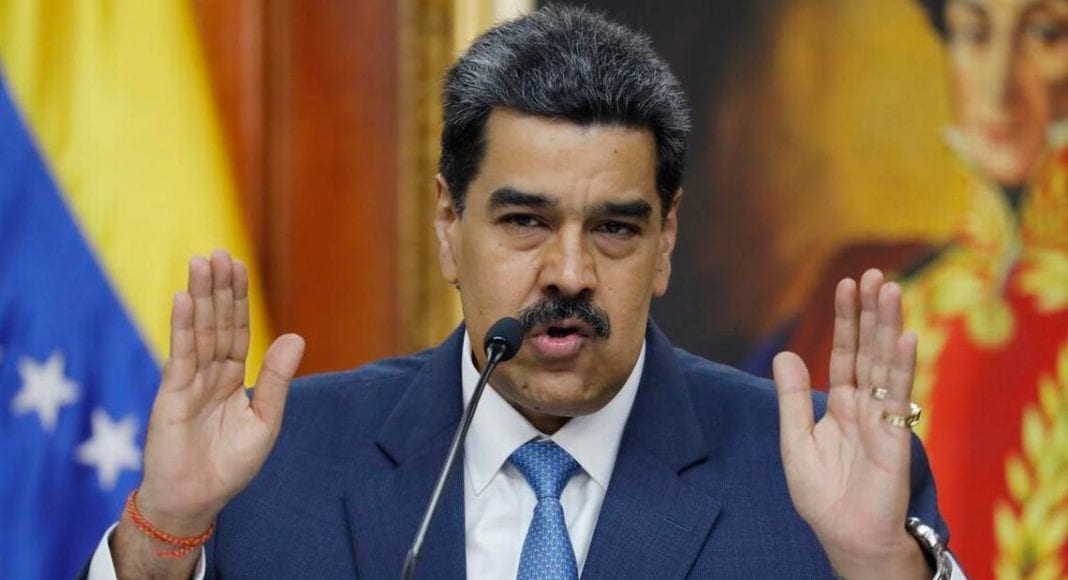(MarketWatch) The Trump administration on Tuesday ordered Chevron Corp. to “wind down” operations in Venezuela by Dec. 1, barring the California-based oil giant in the meantime from drilling or exporting, as the U.S. increases pressure on President Nicolás Maduro to give up power.
Chevron is the last major U.S. oil company to do business in crisis-wracked Venezuela, investing in the South American nation’s oil fields and machinery over the last century with an estimated value of $2.6 billion, which analysts say Maduro’s government will likely take over.
It’s the latest in a series of steps the White House has taken against Maduro, quickening the pace of its push to end his presidency and more than 20 years of socialist rule that critics blame for leading the once rich oil-producing nation to economic and political ruin.
Venezuela sits atop the world’s largest oil reserves, yet its political upheaval and economic crunch have led 4.5 million people in recent years to flee their native country, where many lack basic services like running water, electricity, gasoline and functioning hospitals.
After levying a series of financial and economic sanctions on Maduro and his allies, the Trump administration has waged a campaign of maximum pressure in recent weeks. U.S. federal prosecutors have indicted Maduro as a narcotrafficker, putting a $15 million bounty on his head, while sending warships and planes to intercept illegal drug shipments crossing the Caribbean bound for the United States.
U.S. officials also unveiled plans for a transitional government to hold a presidential election years before Maduro’s current term ends. Maduro has rejected the demands of the U.S. and dozens of other nations that he resigns, saying Washington is conspiring against Venezuela’s socialist revolution so it can steal its oil.
This comes at a tumultuous time for oil producing nations with global energy prices driven down in part due to a glut of oil in storage worldwide as drivers stay home under coronavirus quarantines rather than gas up their cars or board planes.
Chevron had been arguing that any void in Venezuela created by its departure would likely be filled by companies from Russia and China, harming long-term strategic U.S. interests in the country, which is an OPEC member.
Chevron’s net daily production in 2019 averaged 35,300 barrels of crude oil, equal to roughly 6% of Venezuela’s total production. Recently, Venezuela had been scaling down more amid the tumult in the global oil market.
The United States and nearly 60 nations support Venezuelan opposition leader Juan Guaidó’s claim to be the country’s legitimate president, calling Maduro’s 2018 election a sham because leading opposition candidates were banned.
Shortly after Guaido declared his plans to oust Maduro in early January 2019, the White House hit Venezuela’s state-run oil company PDVSA with sanctions, aimed at cutting the socialist government off from hard cash it earned from oil production.
However, the U.S. allowed Chevron, which operates joint ventures with PDVSA, to continue working in Venezuela. U.S. Treasury Department officials had to renew Chevron’s license to operate in Venezuela every few months. Now, Chevron is allowed to maintain its presence at their facilities until Dec. 1 and perform essential maintenance.
Oilfield service providers Halliburton, Schlumberger, Baker Hughes and Weatherford International also have to cease their work in Venezuela under the action affecting Chevron, Treasury officials said.
Chevron’s legacy in Venezuela dates back to the oilfield discoveries in the 1920s. Among holdings today, Chevron runs two major investments.
It’s the last U.S. oil company standing in Venezuela after ExxonMobil and ConocoPhillips left years ago rather than accept the terms set by Venezuela’s socialist government to operate as minority partners in joint ventures with PDVSA.
Russ Dallen, head of the Miami-based investment firm Caracas Capital Markets, expects the Venezuelan government to take over Chevron’s operations itself and predicts Maduro’s administration will eventually run them into the ground. That is what happened to a long list of U.S.-built factories that fell into the socialist government’s hands when they decided to leave or were expropriated, he said.
“It may take years of decay for the government to destroy the Tiffany diamond that Chevron has built there,” Dallen said. “I have no doubt they’ll be able to destroy it.”
Source: MarketWatch



